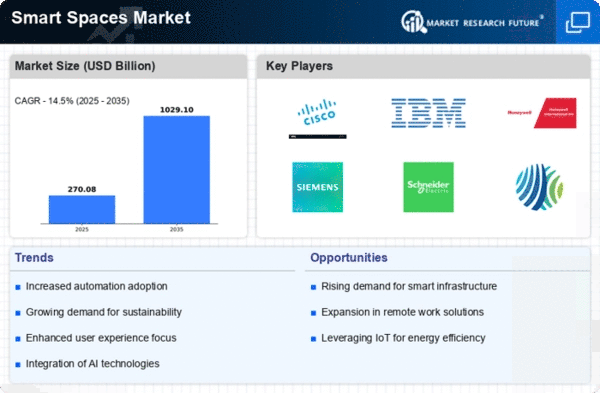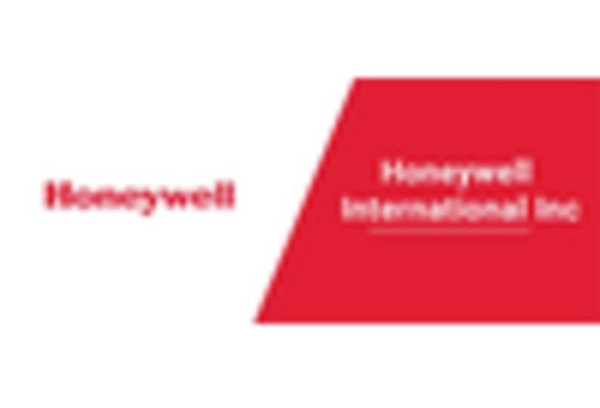Market Share
Smart Spaces Market Share Analysis
The integration of advanced technologies into our everyday environments has seen the Smart Spaces market experiencing a significant upsurge of growth and innovation recently. These smart spaces (homes, offices, retail outlets, among others) are becoming more intelligent and connected, thus significantly improving the overall user experience. One of the main drivers behind this trend in the market is increased adoption rates for Internet of Things (IoT) enabled devices, which allow for seamless communication and data exchange within a space for most elements present inside it. Over the past few decades, there has been a rise in smart home products within the residential sector, ranging from thermostats coupled with light fittings to security and entertainment systems, among others. Interconnectedness facilitates convenience, energy efficiency, plus consumer's attitude towards safety, hence increasing demand for such items. Similarly, the commercial segment has also witnessed a transformational process through the implementation of smart office solutions. The retail sector is no exception to this, with the use of smart technologies to create immersive and personalized shopping experiences. Retailers are using smart spaces for customer engagement and operations streamlining, from automated check-out systems to interactive displays. Artificial Intelligence (AI) is a key determinant of future developments in smart spaces. Machine learning algorithms assist in creating models that can learn or adjust according to individual users' needs, resulting in more personalized and efficient service delivery. The global drive towards sustainability also influences smart spaces market trends. People are embracing smart solutions that are environmentally friendly as they seek ways and means to reduce their carbon footprint. Efficient resource management, lower energy consumption, and environmentally friendly practices are what make smart spaces sustainable. Connectivity is one of the main pillars of smart spaces. Hence, the advent of 5G would further push the market ahead. 5G provides fast-speed communication with low latency, resulting in devices interacting smoothly and making more sophisticated and responsive automated environments possible. This can be seen clearly through the development of smart cities where 5G networks support multiple applications like intelligent transportation healthcare, among others. In addition, emerging issues such as data security and privacy concerns are becoming prominent as the market for this technology continues its evolution path. Therefore, there are questions about how safe sensitive information on these devices may be from unauthorized access or even abuse by cybercriminals across different parts of the globe who might want to use it for their benefit at our expense. These difficulties must be addressed if trust is upheld between users and wise creators of intelligent space equipment.


















Leave a Comment